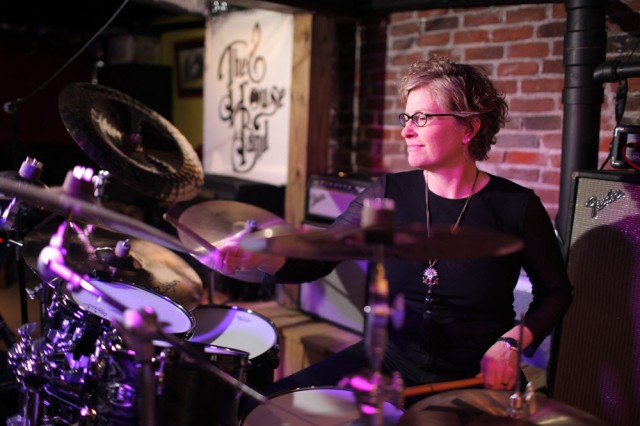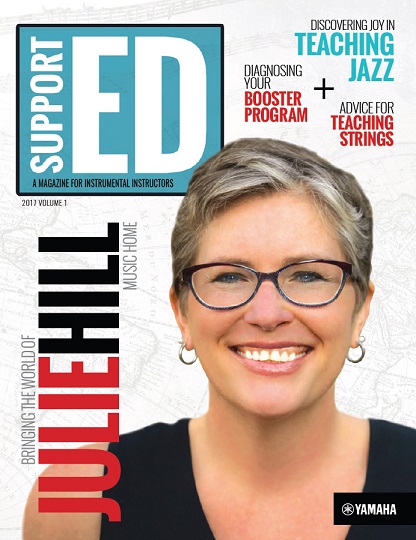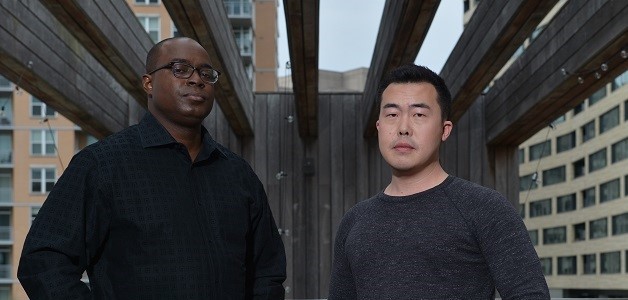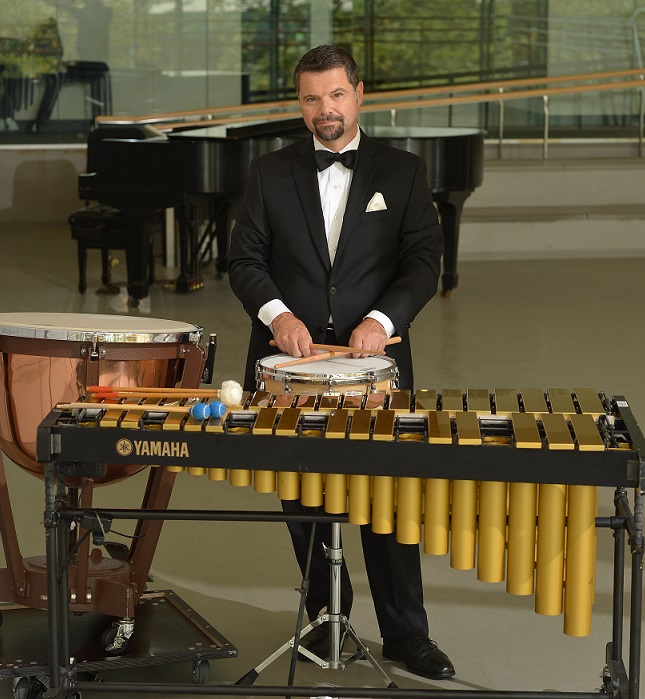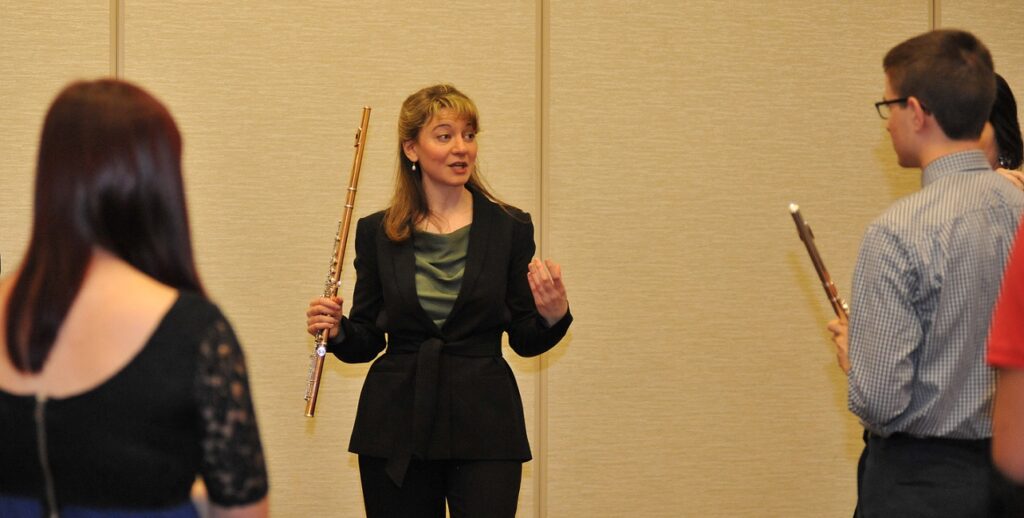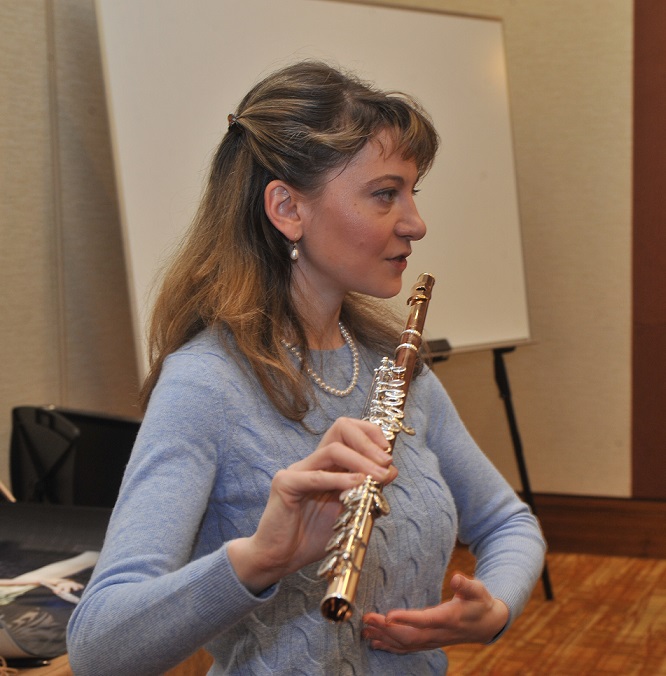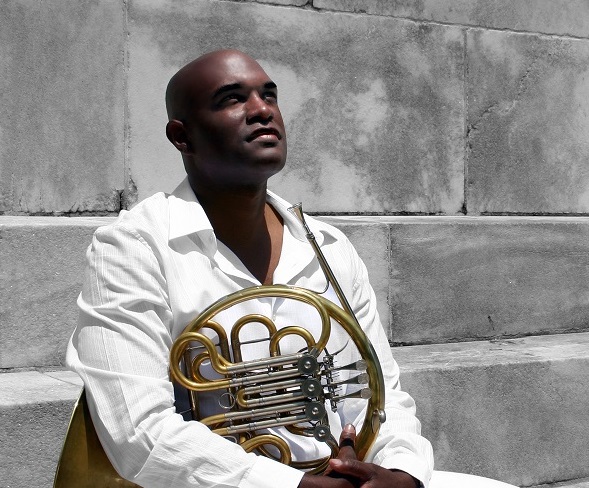Tagged Under:
Percussionist Julie Hill Brings the World Home
After traveling the world and immersing herself in varied styles of music, Julie Hill returned to her roots in Tennessee to make percussion music more accessible for students of all backgrounds.
As a child in the small town of Martin, Tennessee, Dr. Julie Hill dreamed of traveling the world.
Hill soon found herself performing percussion music in Brazil, Mexico, Peru, France, South Korea and all across the United States, but she never expected that her dream job would be in her own backyard.
Now in her 12th year as director of percussion studies and recently appointed music department chair at the University of Tennessee at Martin (UTM), Hill uses her vast, worldly knowledge and experience to give back to students in her hometown. After spending her life venturing outside her comfort zone, Hill’s goal is to make sure that her students seek out every musical opportunity they can.
Through her additional role as immediate past president of the Percussive Arts Society (PAS), she also works to make those opportunities available to all musicians, regardless of background. “I think of myself as the kind of student I want to help,” she says.
Hunger for Knowledge
Percussion first captivated a 4-year-old Hill when she attended her older brother’s middle school Christmas concert. As she watched her brother play the clarinet, the back-row percussionists caught her eye. “They were active and busy and making really big gestures,” she remembers.
When she entered sixth grade, Hill began playing percussion in her school’s band program. However, practicing and performing was not enough to satiate her growing hunger for musical knowledge, so the high school band director arranged for one of the senior percussionists to tutor her. “He would work with me on skillsets, so I would have some extra things to practice,” she explains. “That was enough to keep me motivated.”
Everything changed when Nancy Mathesen, a professor from UTM, came to speak with the high school band. Hill instantly took a liking to Mathesen and wanted to learn more from her; however, Hill’s family faced difficult financial constraints and could not pay for private lessons. “I said, ‘My parents are broke. We’re about to lose our house,'” recalls Hill. “She told me that if I practiced 10 hours a week minimum, she’d teach me for free.”
Hill proved her dedication immediately. She jumped at the only time slot — 6:30 a.m. on Friday mornings — that Mathesen had left for lessons. “Nancy said that through hard work, anything could be accomplished,” Hill says. “She despised laziness and those who made excuses. She was and always will be an inspiration to me.”
That relationship opened up a world of opportunities. During her senior year of high school, Mathesen took Hill to the Percussive Arts Society International Convention (PASIC), which inspired her to commit to percussion as a career choice. “I was thinking about becoming a chemistry major,” Hill says, “but I came back from that conference and knew I wanted to play percussion forever.”
After attending the conference’s concerts and clinics, Hill felt motivated to emulate the other percussionists’ work ethics. “Being in that environment where you see what it takes for people to be successful, seeing how great those people were and reflecting inward at my current status … I [knew I had] a lot of practicing to do. It’s inspiring to know there are a lot of people better than you are.”
Coming Full Circle
The loyalty Hill felt to Mathesen led to her enrolling at UTM for her Bachelor of Music Education degree. Hill then went to Arizona State University to earn her Master of Music in Percussion Performance. Soon afterward, she moved back to Tennessee to be with her terminally ill mother. While there, she started playing in a funk band called 27 B Stroke 6. Some of the group’s noteworthy performances include opening for Bob Dylan and Paul Simon.
Hill also began teaching band to fifth and sixth graders at Bellwood Elementary School in Murfreesboro, Tennessee, where she founded an after-school steel percussion program, Steel de Boro, which still exists today.
Steel de Boro’s beginnings were humble. The group grew from a need for better instruments in the school’s band program. “We had instruments that were falling apart,” explains Hill. Because she was new to the district, Hill did not feel that she could ask the school board for thousands of dollars for new instruments. She found an alternate solution: Hill brought in a variety of percussion instruments from her personal collection at home.
Using her own instruments, Hill taught the students rhythm, then arranged a world percussion piece for the students to rehearse. Her students performed at a school board meeting and amazed the administration. The next thing Hill knew, the administration was offering her assistance and funding to acquire new wind and percussion instruments for the band. “You have to create a little magic and build a little trust before you start asking for things,” she says.
Performing and Traveling
When looking for help to run Steel de Boro, Hill found Amy Smith and Julie Davila, who also held advanced percussion degrees. Hill soon realized that she’d been spending most of her time teaching and not enough time performing, so the three decided to form a group, calling themselves the Caixa Trio. This extra-curricular activity helped satisfy Hill’s desire to travel; the ensemble would go on to perform shows and percussion festivals around the United States as well as in Mexico, South America and Asia.
One of the Caixa Trio’s goals is to showcase the wide variety of musical styles that percussion instruments can achieve. “We try to have really diverse programs,” Hill explains. “We don’t want to just play world music or rudimental styles. Percussion is anything you can strike, shake or scrape.”
Hill’s love of travel and success performing abroad stems from her fearlessness when it comes to the unknown. “I am a person who believes that being out of one’s comfort zone is the only way for personal growth to occur,” she says.
When traveling abroad, Hill breaks down cultural barriers by fully immersing herself in the place she is visiting. “For example, [in Brazil], I choose pousadas [small hotels] in urban neighborhoods rather than large ‘American-friendly’ hotels. Why go to a place to experience what you already have back home?”
Though Caixa Trio and 27 B Stroke 6 perform a little less these days, Hill always makes sure that her students are able to see the groups in action. “Play for [your] students,” she advises. “Sometimes, students are not aware of this other life we have.”
Hill’s other life has now expanded beyond her groups. This season, she became the Paducah Symphony Orchestra‘s principal percussionist. She is also a member of the X4 (pronounced “Ten-Four”) Percussion Quartet. X4 won first place in the 2016 PAS Italy Percussive Arts Web Contest in the Percussion Ensemble category.
But no matter how busy she is performing, Hill always finds a way to bring it back to her students. She likes to arrange master classes, concerts or festival performances for her students to attend at least once a year. X4 performed at UTM in the past and will soon be returning, and because the Paducah Symphony Orchestra offers discounted tickets for college students, many of her students are able to see her perform there as well. “It creates a second level of respect,” Hill says. “They see me in the practice room, working on music like they are. That inspires them. I walk the walk every day. I want to teach them to be life learners through my example.”
Making Percussion Accessible to All
After attending PASIC for the first time during her senior year of high school, Hill couldn’t wait to return. In addition to the clinics and concerts, Hill was excited by all of the friendships she formed. “When you come here, you make new friends,” she says. “Percussionists are giving, social people. We like to be together.”
These new friendships have led to important musical connections for Hill, helping her secure guest teachers and clinicians for her students. She frequently serves as a guest at other schools to teach Brazilian percussion, and in exchange, the instructor from that school will teach his or her area of expertise at UTM. “It’s common to trade skill sets,” she explains. “Everyone’s students get something, and it doesn’t cost the program anything. Almost every door that has been opened has been because of someone I met at PASIC.”
Hill also encourages educators to attend PASIC with their students, advising them to attend as wide a variety of events as possible. She makes a point of sitting down with her own students to give them her recommendations about which events she thinks they should attend. “Students gravitate toward what they already love,” she says. “A lot of students don’t think, ‘I’m [going to] go to that panel discussion,’ but it’s important for them to see how they can assert themselves as professionals.”
As PAS immediate past president, Hill advocates for initiatives that help students. “We started streaming the convention [online], so those who don’t have the money to get there can be a part [of it] from home,” she says. “We’ve created low-priced group memberships for young people and made PAS much more affordable for international chapters.” Additionally, Hill helped launch the new PASIC International Scholarship. “PAS is an international organization, but with the convention always being in the USA, it’s difficult for members from around the world to [attend],” she explains.
To further encourage inclusivity, Hill created PAS’s ad hoc Diversity Alliance committee. This committee works to increase the visibility of minority groups in the percussive community, such as women, people of color and LGBTQ members. PAS also runs Rhythm! Discovery Center, an interactive percussion museum in Indianapolis. Hill is currently working with the organization to create virtual exhibits so that individuals can still get the museum’s educational benefits without traveling to Indianapolis. “I want students to have everything they need,” she says. “If they’re hungry, I want to feed them.”
Hometown Hero
After working on her Doctor of Musical Arts from the University of Kentucky, Hill moved back to Martin to be closer to family. Mathesen had recently retired as director of percussion studies at UTM, and when Hill received the job offer for the position, she eagerly accepted.
After spending years performing an eclectic mix of styles with the Caixa Trio and researching musical styles from Brazil, West Africa and more, Hill has a wealth of knowledge on the diversity of percussion to pass along to her students. “We study everything from drum set to marimba to global musical styles and much, much more. The students are really marketable when they finish.”
Hill is currently teaching a new world music class that is open to all music majors, not just those specializing in percussion. She also leads the university’s world percussion ensemble, which performs musical styles from a myriad of different countries. Last year, the ensemble won the PAS World Percussion Ensemble Competition.
Beyond her evident musical influences, Hill also loves passing on her pay-it-forward mentality to her students. “A big passion of mine [is] making sure students have access to opportunities,” she says. Each fall, Hill and the world percussion ensemble travel around Tennessee to perform for thousands of elementary students in a two-and-a-half-day tour called Roots of Rhythm. “It’s a good way for my students to teach and learn how to give back as well,” she explains.
UTM also hosts the Honor Percussion Ensemble each spring. At this event, top high school percussionists from Tennessee and surrounding states come together for a giant percussion festival and finale performance. “It’s good for recruiting and creating opportunities for students who don’t have them,” Hill says.
Whether she is performing in another country or teaching at her alma mater, Hill spreads music and opens doors for others. “Some people need status. I need purpose,” she says, drawing inspiration from a quote often attributed to Mahatma Gandhi: Be the change you want to see in the world. “I say that to my students a lot,” she explains.
Growing up with an intense hunger for knowledge and a desire to break free of her small hometown, Hill never expected that her journey would lead her right back to where she started. “I don’t think I would’ve said 25 years ago that my dream job was teaching at [UTM],” she reflects. “Your dream job might be where you already are.”
Photos © 2017 Nathan Morgan and Stephen Downing, All Rights Reserved
This article originally appeared in the 2017 V1 issue of Yamaha SupportED. To see more back issues, find out about Yamaha resources for music educators, or sign up to be notified when the next issue is available, click here.











